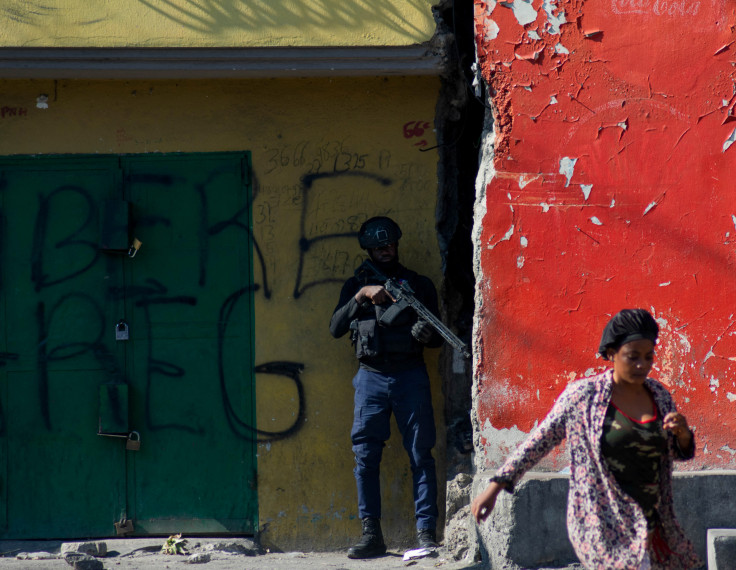
Haitian police officers are calling for better protection and resources following the killing of a Kenyan police officer who was part of a UN-backed mission to combat ever-increasing gang violence.
Garry Jean Baptiste, who leads of one of Haiti's main police unions, urged the government to provide more equipment and support as gangs continue expanding their control over Port-au-Prince, now estimated to be at 85%.
The demonstration, attended by a small group of civilian protesters, came a day after Kenyan officials confirmed that a police officer was shot in Haiti's Artibonite region, an area dominated by gangs. Jean Baptiste also criticized delays in police salaries and called for financial assistance for the families of slain officers.
Prime Minister Alix Didier Fils-Aimé later responded at a press conference, saying the government is committed to improving security through increased investment in police equipment.
However, the transitional government is facing challenges of its own, with a new report by the International Crisis Group recommending it refrain from holding elections until it manages to provide some security and governance to the country.
Establishing a political assembly to address internal disputes, forming a National Security Council, and enhancing anti-corruption measures are among the steps urged to restore public trust, reads a document addressing the Caribbean country's current crisis, which has deteriorated over the past months.
Political infighting and corruption allegations have hindered the transitional government, which was formed in April 2024 to organize a path toward Haiti's first elections in nearly a decade. The appointments were intended to provide stability, but internal tensions have led to further dysfunction. Some factions are calling for a complete restructuring of the administration, while corruption allegations against three council members have further damaged credibility.
Holding elections under such conditions presents serious risks, according to the group. While Haiti aims to hold a constitutional referendum and national elections in 2025, preparations have been slow. Electoral bodies were only appointed in December, and the country still lacks an updated voter register. Low voter turnout and the potential for gang intimidation could undermine the legitimacy of any election held in the current climate.
Foreign security assistance remains uncertain. The United States, Haiti's primary donor, has partially frozen funding under the Trump administration, raising concerns about future security operations. The international security mission has also faced funding shortages, with fewer than expected personnel and resources arriving in the country. The United Nations is weighing financial and logistical support options, including a proposal to convert the Kenyan-led force into a UN peacekeeping operation, which would provide more stable funding and resources.
© 2025 Latin Times. All rights reserved. Do not reproduce without permission.





